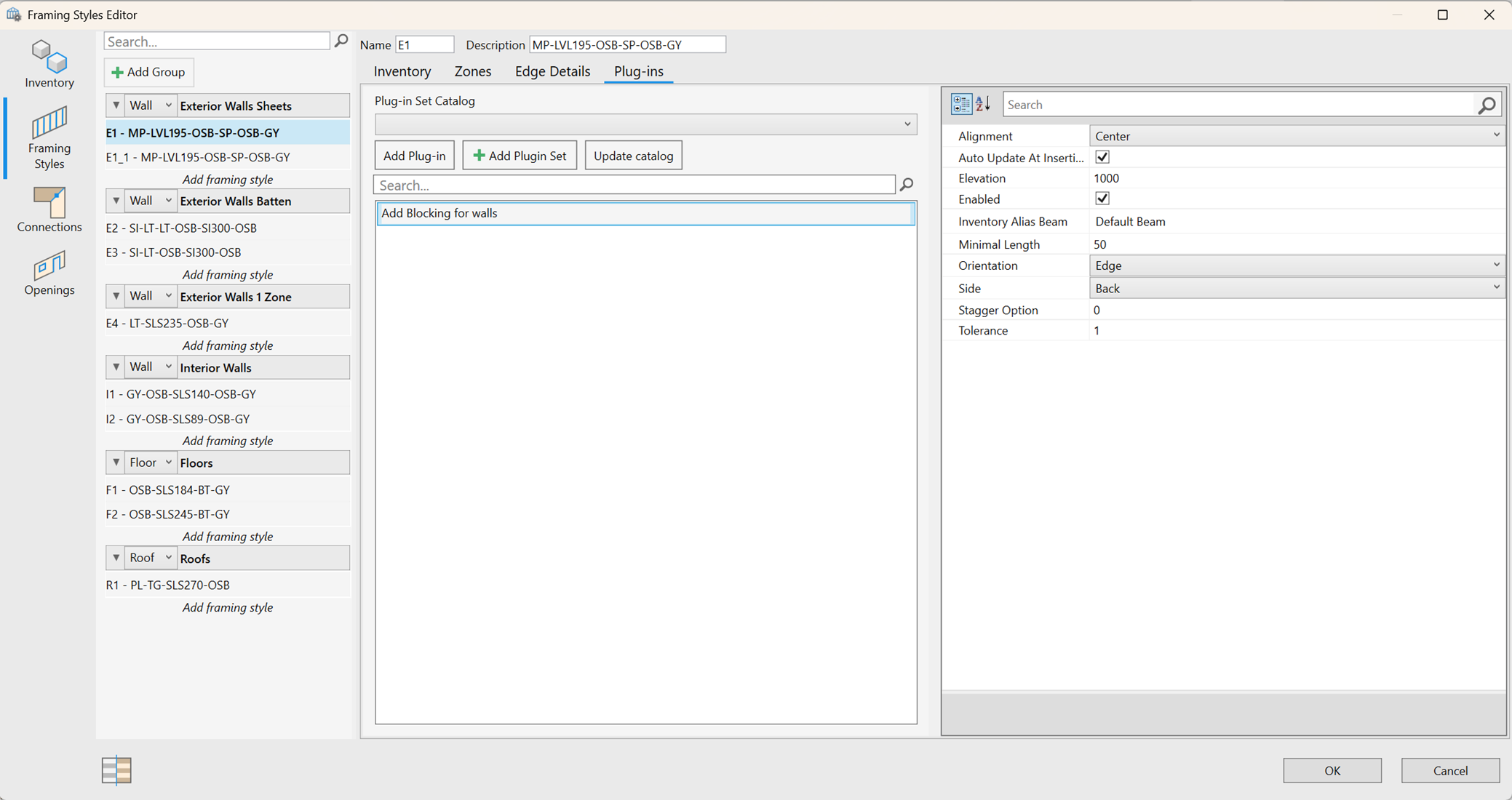Version 29 of hsbDesign for Revit®
New and improved in hsbDesign 29 for Revit®
This release brings smarter imports, enhanced framing control, and greater automation to hsbDesign for Revit®. The IFC and ModelX importers now map elements directly into native Revit objects with hsbcad data. New tools like the Three-Wall Connection, Volumetric Drywall System, and Free Profile voids improve detailing precision. Expanded hsbDynamo nodes, spot elevation automation, and the updated Framing Styles Editor streamline repetitive tasks and setup. And with support for Revit 2026, you’re ready for the next generation of BIM workflows.
IFC Importer
Seamlessly map IFC elements into native Revit elements enriched with hsbcad data. Supports engineered trusses, walls, floors, roofs, and mass elements. Ensuring smooth data exchange across platforms and improving collaboration with external partners.

Three-Wall Connection
Resolve complex intersections between three walls with ease.
Create customized details to model these connections precisely, maintaining both design accuracy and constructability.
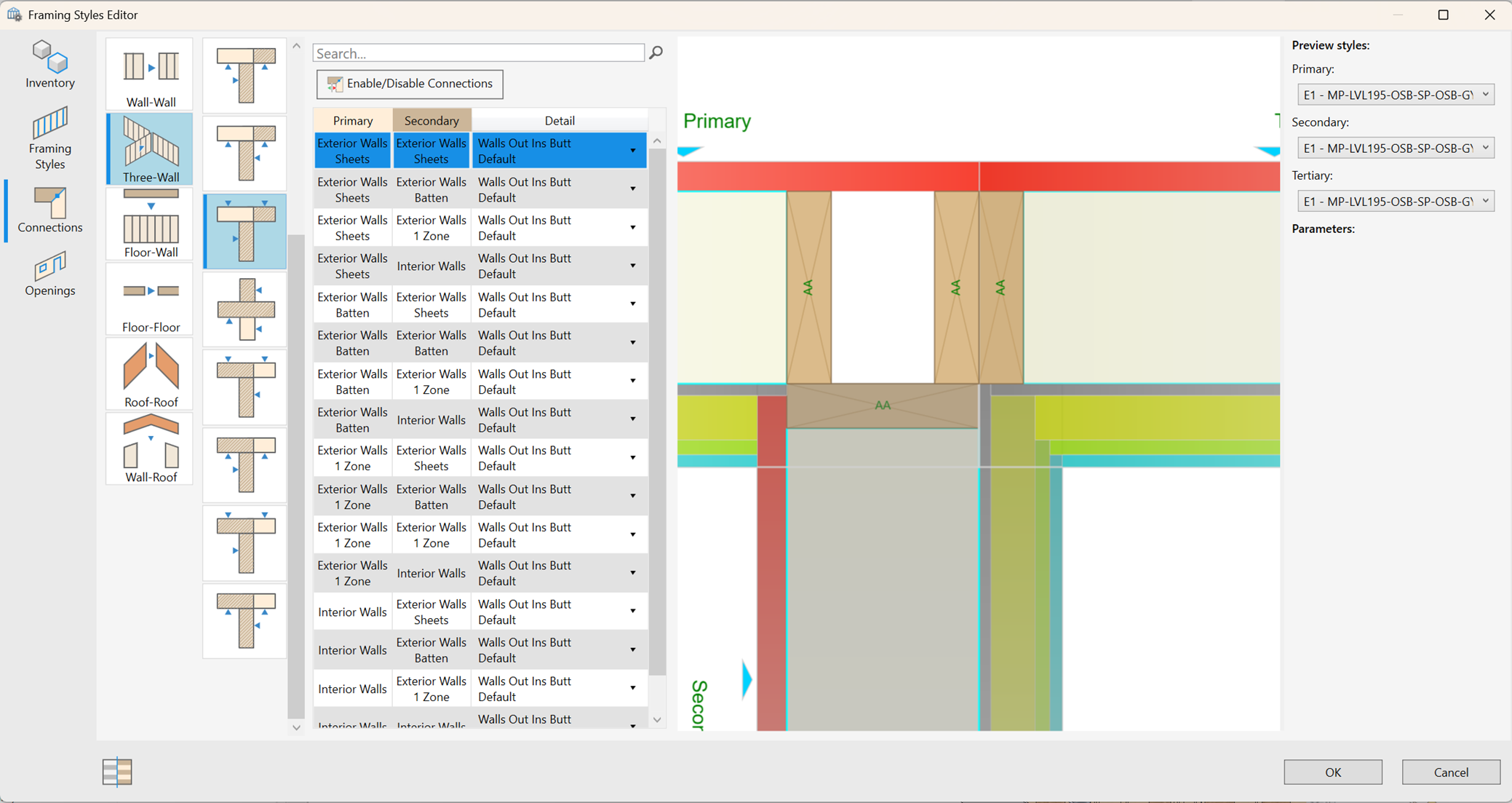
ModelX Importer
The enhanced ModelX Importer mirrors IFC import capabilities while adding a new validation and extension interface.
Two new extensions now allow users to:
- Map ModelX entities into Revit families.
- Import ModelX properties as Revit parameters.
Resulting in smoother integration and increased design flexibility.
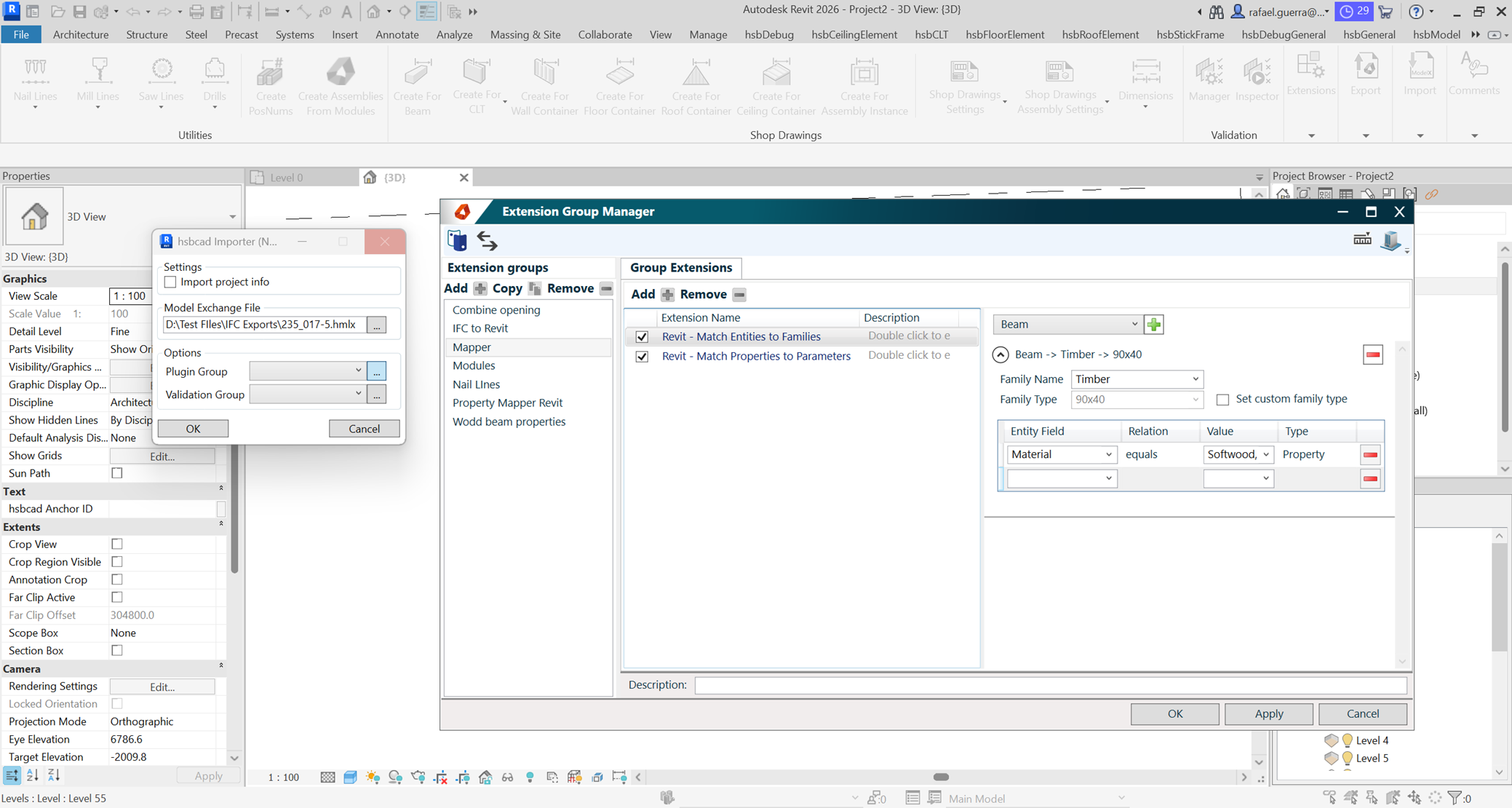
Framing Styles Editor
The upgraded Framing Styles Editor speeds up configuration and minimizes setup errors.
- Define default inventory items and codes.
- Assign aliases per framing group.
- Set default material values while keeping the flexibility to override them per group.
Together, these features help standardize framing definitions across teams and projects.
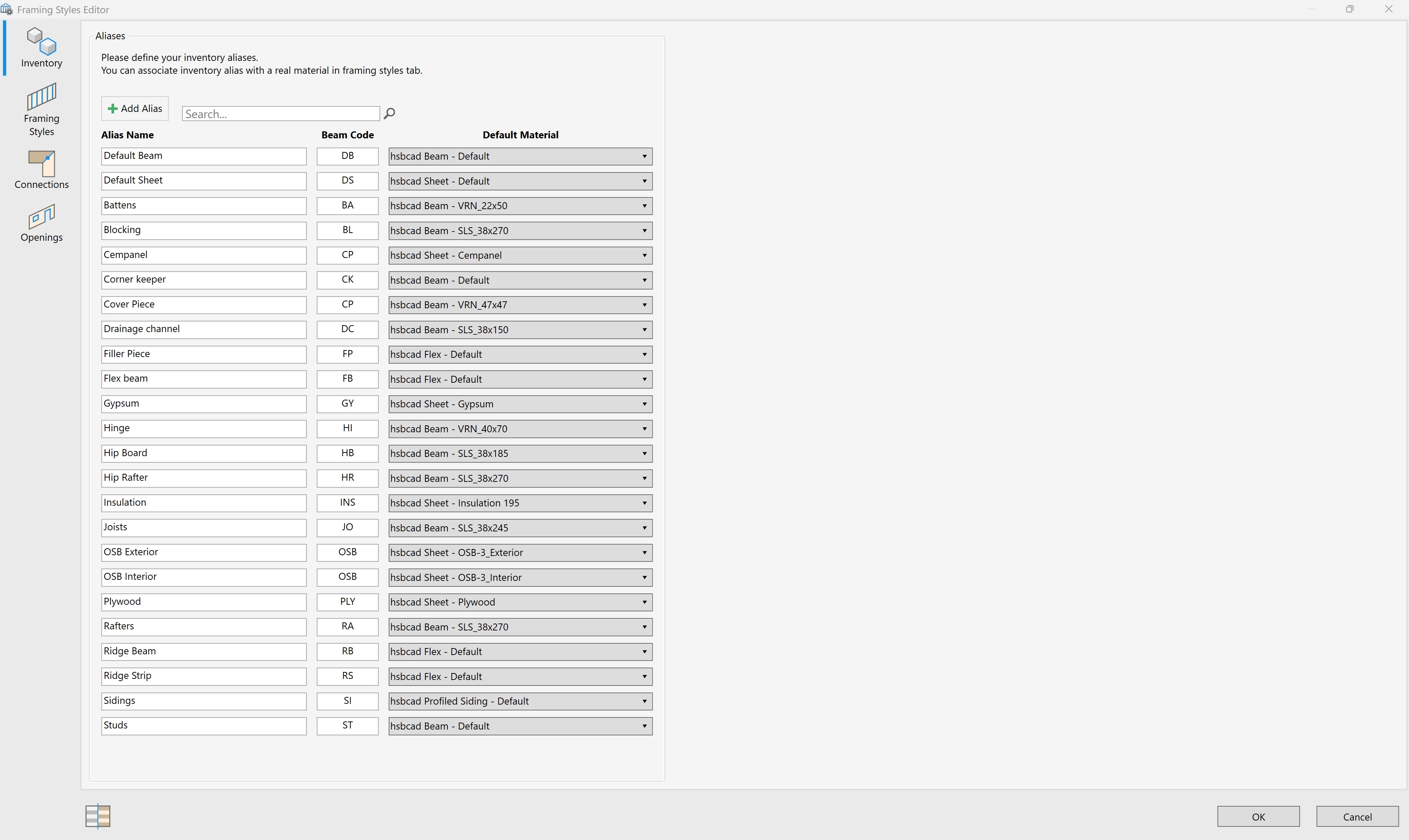
Combine Openings
Merge two openings that share the same header detail into a single definition. The openings don’t need to be identical, only the header detail must match, simplifying and cleaning up wall detailing.
.png)
Drop-In Ladder
Easily place ladders between structural members on walls, roofs, or floors. Flexible positioning along elements enables fast and precise ladder placement in 3D models.
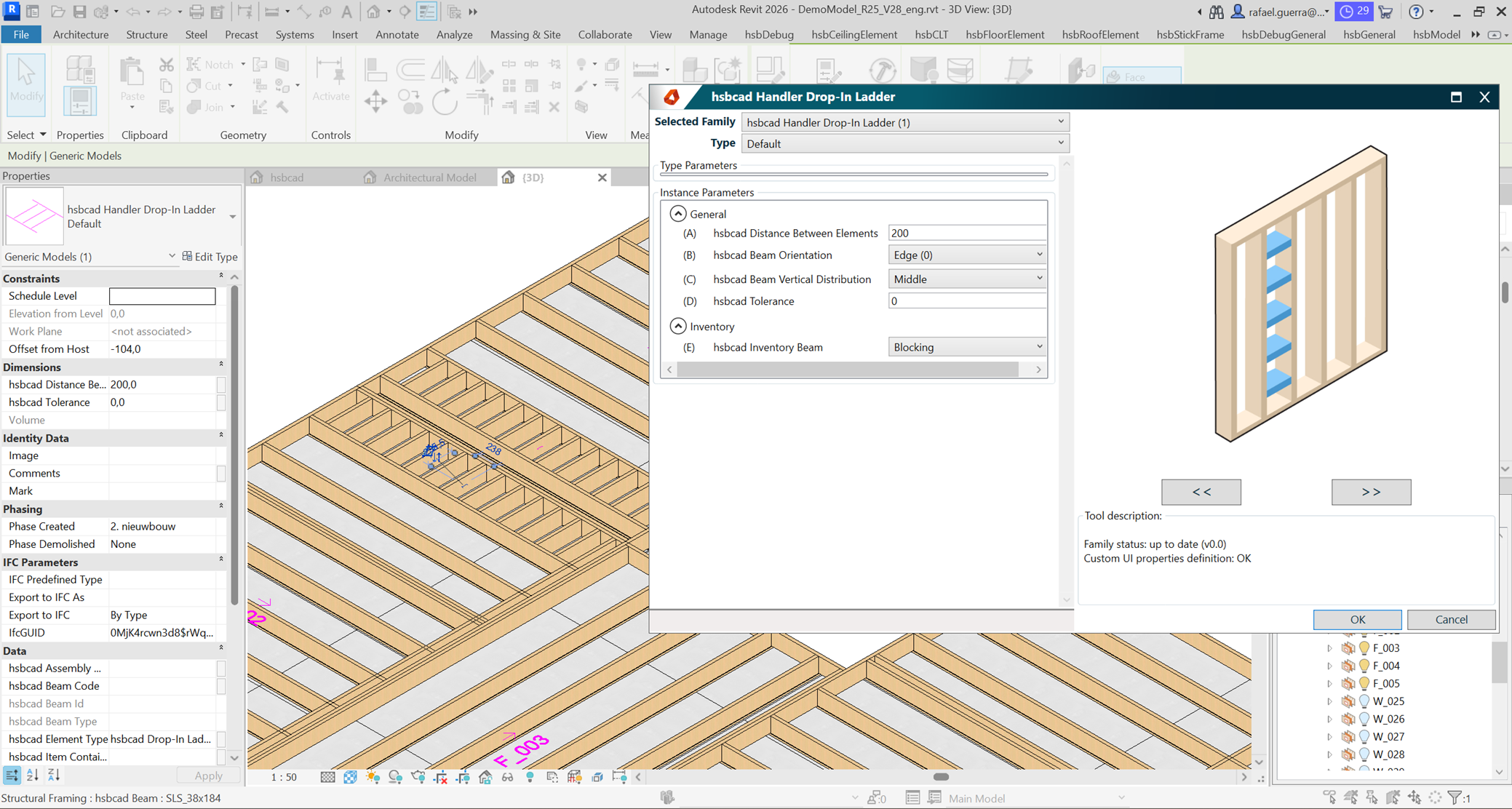
Comments Tool
Export Revit comments, text, and regions directly to hsbMake, hsbView, or shop drawings. This keeps project communication, production notes, and documentation perfectly aligned.
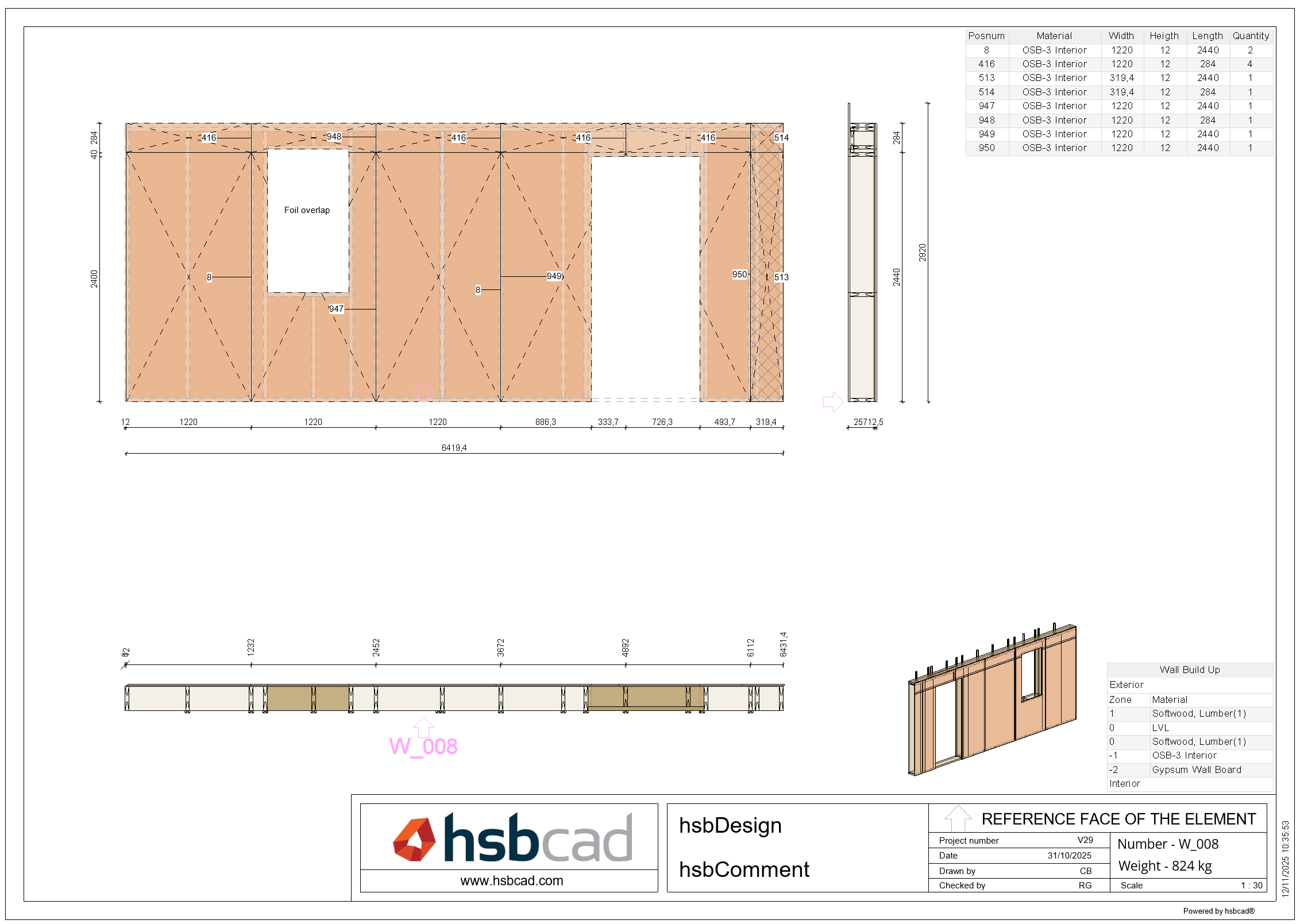
Edge and Connection Overrides
Apply instance-level overrides to edges and connections without affecting the underlying framing style. This provides precise, case-by-case control over individual framing details.
.png)
Spot Elevation Automation
Automatically insert and customize spot elevations in shop drawings using Revit filters and built-in families. Improves annotation consistency and saves time during documentation.
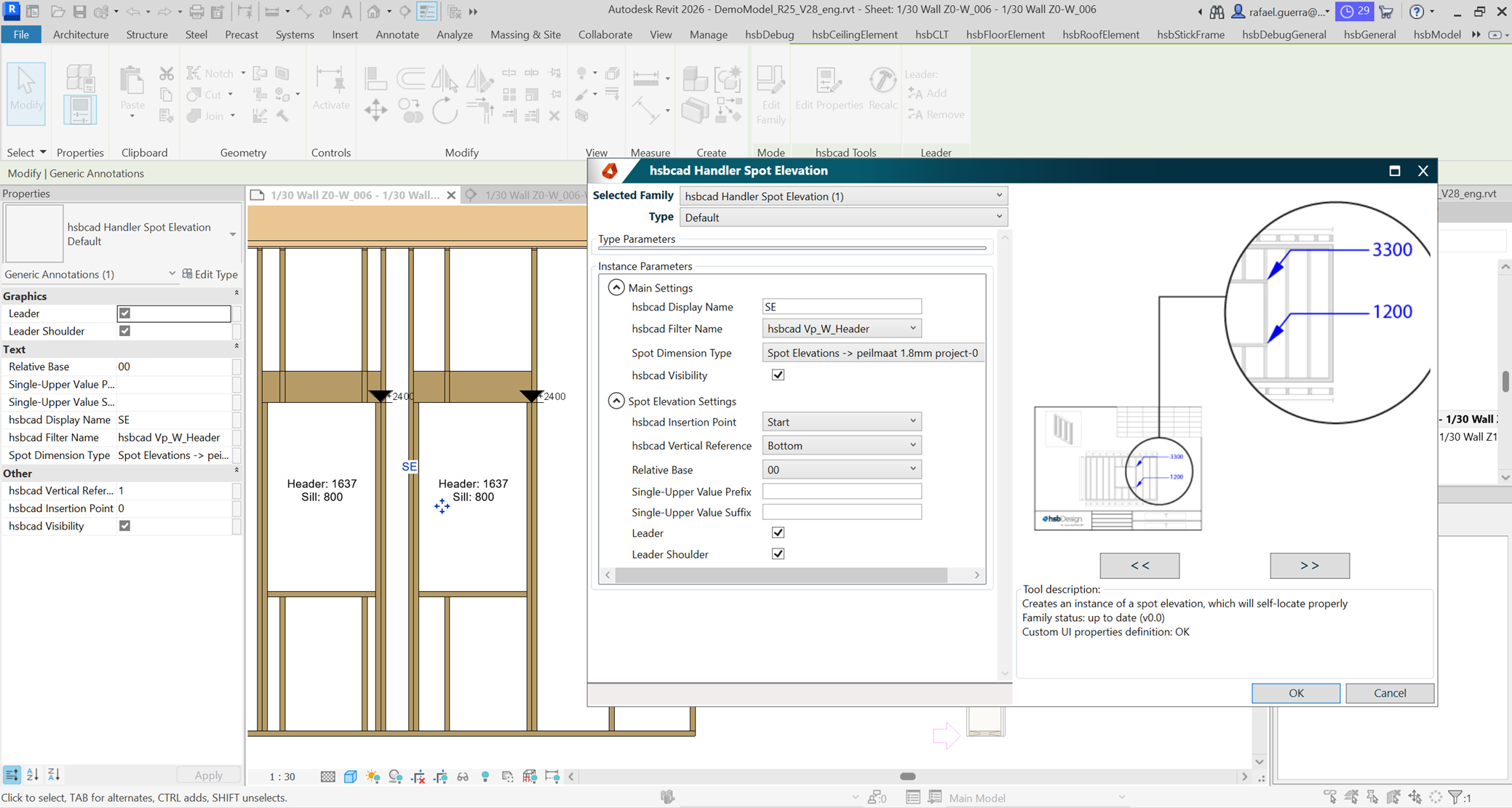
Item Container Management
Easily assign or change an element’s hsbcad item container via a single parameter update, ensuring consistent alignment between Revit elements and hsbcad data.
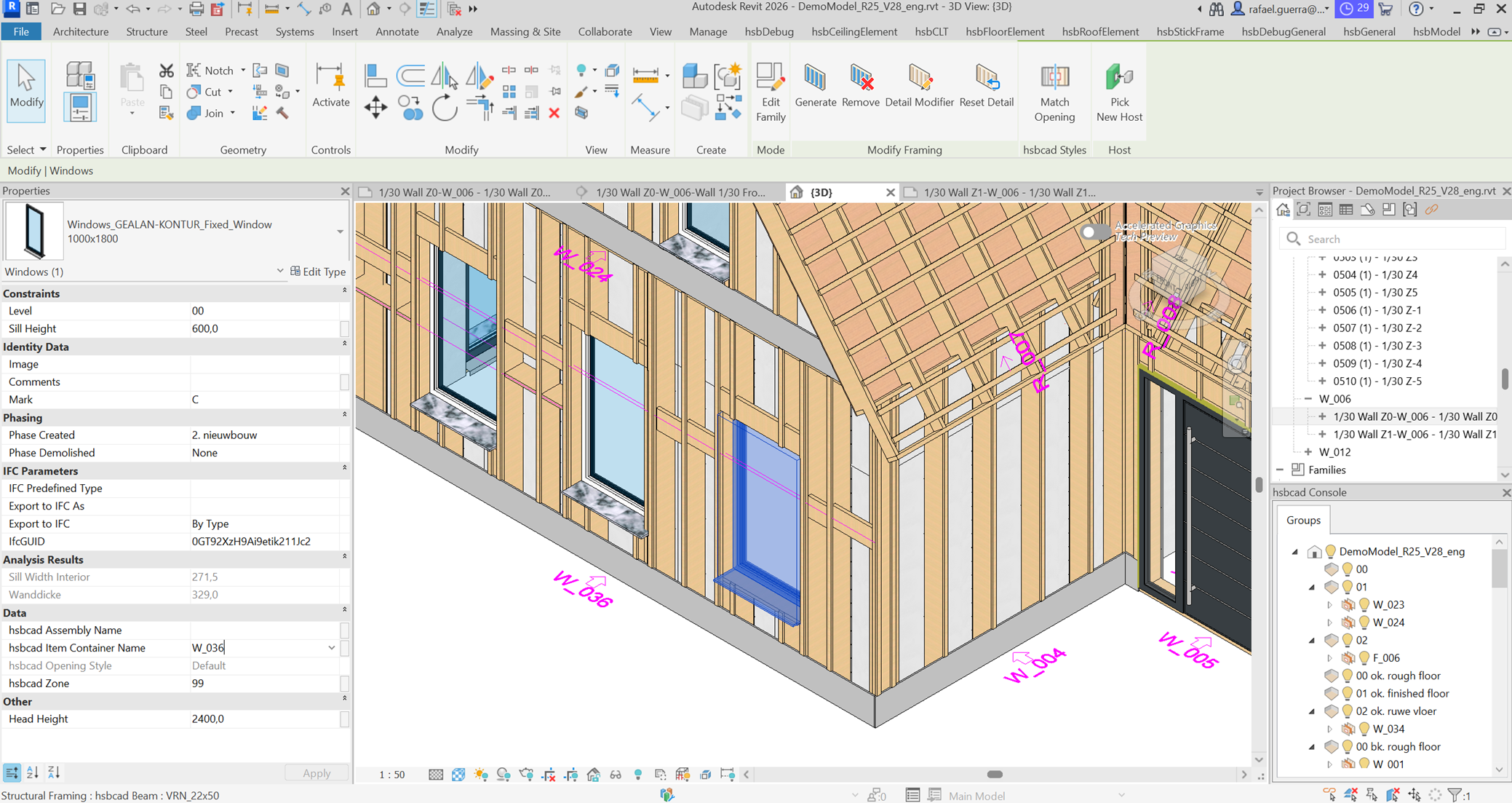
Automatic Assemblies
Automatically generate assemblies from Revit elements that share the same hsbcad module definition. Modules can be assigned or created using the Module Extension, accelerating project organization and production output.
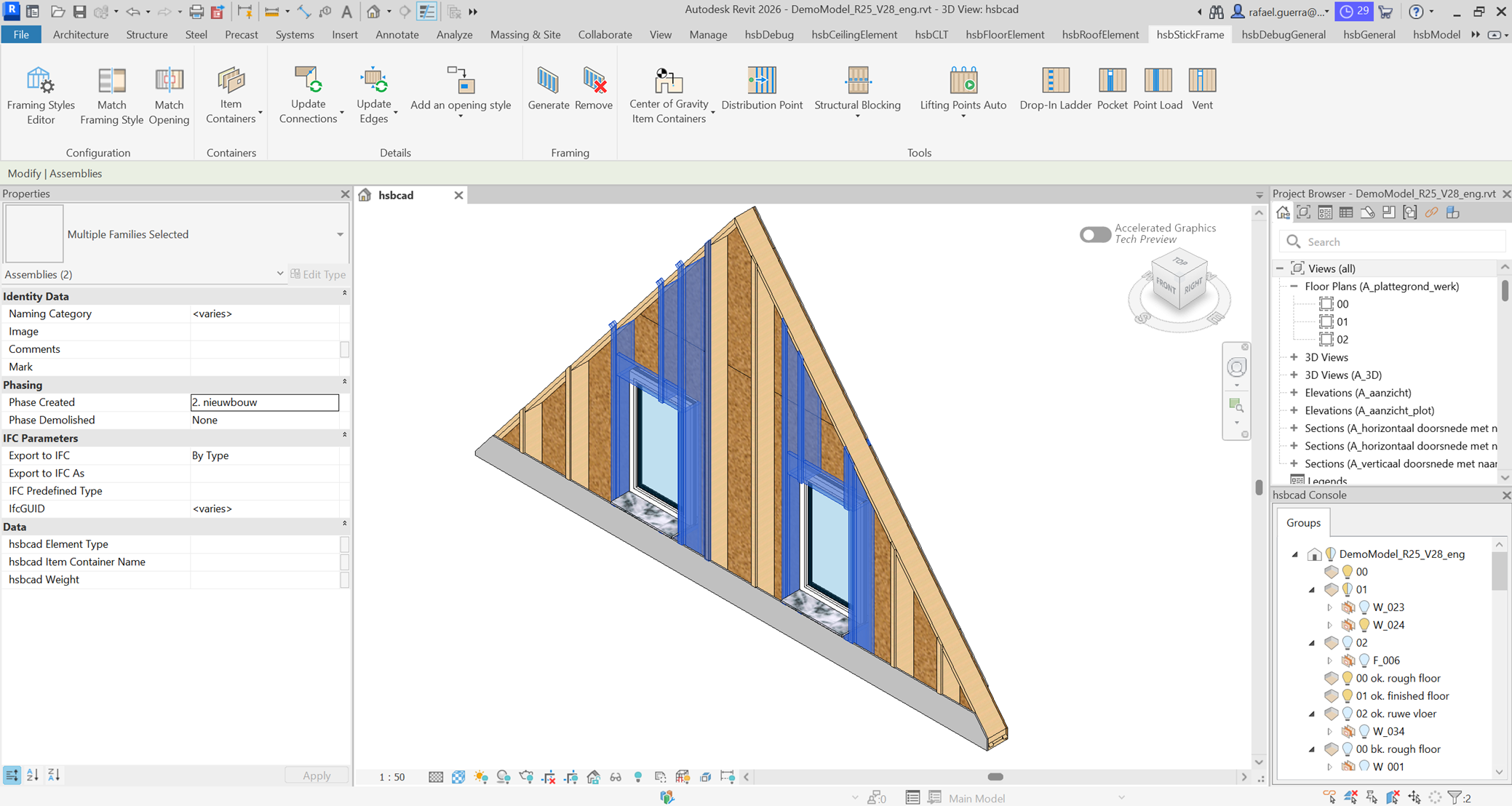
Production details
Define custom text properties for plates, edges, and connections using the Production Detail command. Your custom labels are automatically applied and visible in all production and ModelX outputs.

Expanded hsbDynamo Nodes
New and extended hsbDynamo nodes allow for deeper process automation. Includes dropdown nodes for easier data collection, helping users streamline repetitive framing and data processing tasks.
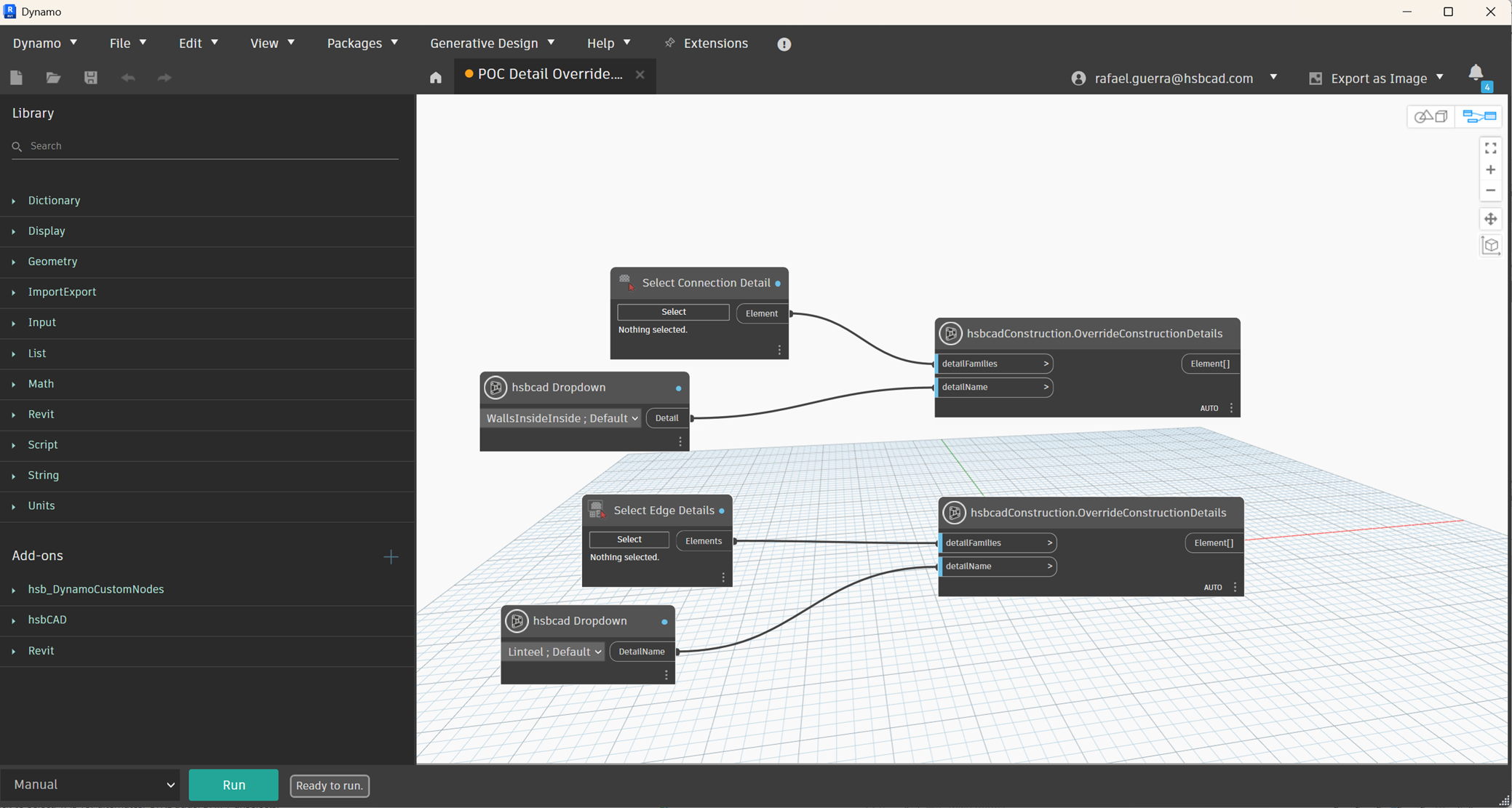
Free Profile Tool
Create custom voids or complex geometry modifications by importing subtractions as Revit voids. Free profiles can be generated via the hsbTimber ribbon command and exported for reuse, offering more flexibility in bespoke design adjustments.
Update Edges
A reworked Update Edges interface delivers faster performance and a smoother workflow for inserting and editing edge details.

Add Blocking for Walls Extension
Adds an instance of the structural blocking code family extension, fully customizable using the tool parameter interface for greater design control.
